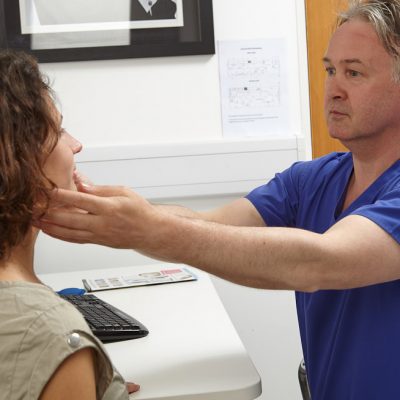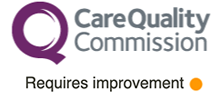Skin Surgery
Do you have any of these?
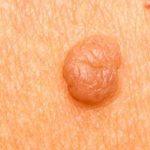
Moles
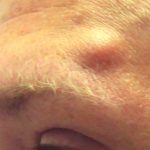
Cysts
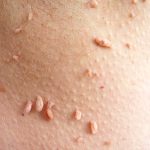
Skintags
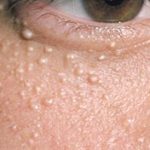
Milia
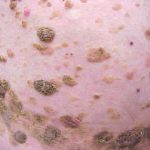
Seborrheic Keratosis
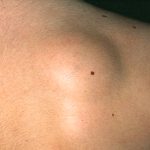
Lipoma
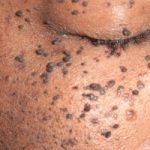
Dermatosis Papulosa Nigra
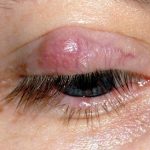
Meibomian Cysts
As a private medical practice, we able to offer a range of minor surgical procedures at the Chiltern Medical Clinics. What makes us different is that we can treat ‘cosmetic’ cases that are often rejected by the NHS and the major health insurance providers.
We don’t have the overheads of bigger private hospitals and we have small operating theatres readily available for a range of minor surgery procedures 6 days a week, so you benefit from short waiting times due to the availability of doctors and resident skin surgeons at either practice.
Before & After Pictures
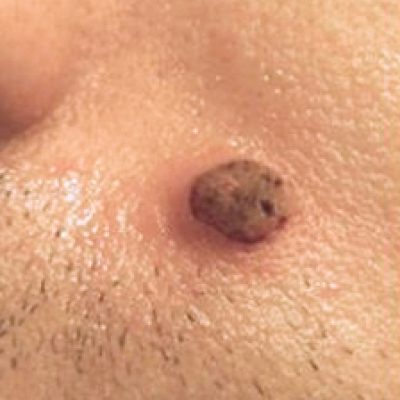
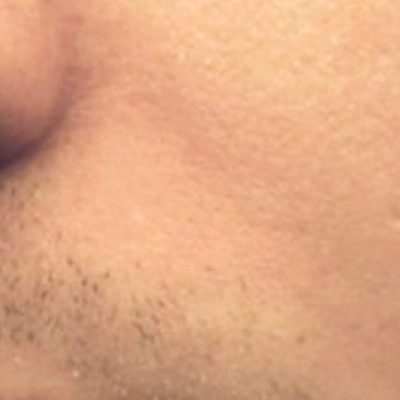
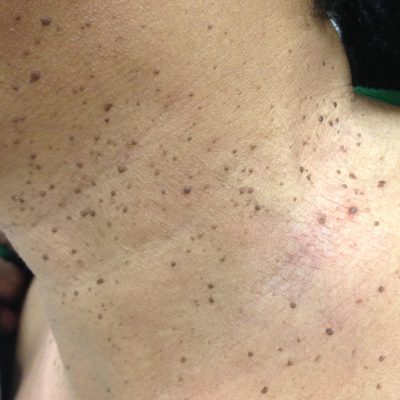
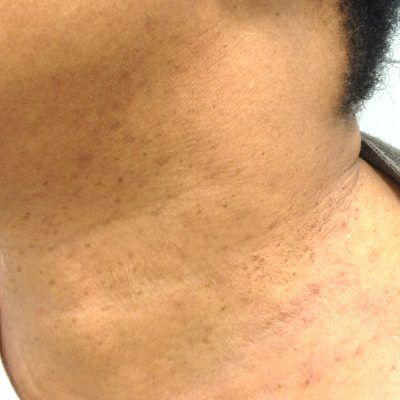
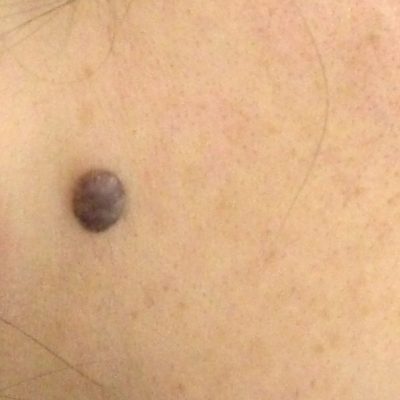
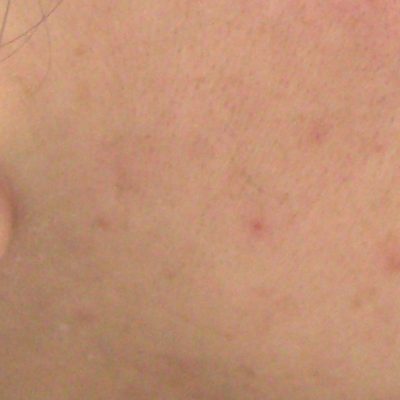
Minor Surgery Frequently Asked Questions
There can be a number of reasons that people contact us about minor surgery.
You may, for example, have developed a single or multiple skin lesions, only to be told that they cannot be treated through the NHS as they are ‘purely cosmetic’. It can be distressing to be told this, especially if the lesions are affecting your body confidence.
Having encountered this brick wall, you may have tried to use your medical indemnity insurance – obtained through one of the major health insurers – only to be told, once again, that you cannot be treated because your problem is cosmetic.
If you are lucky, you may have been able to see a consultant and have a small number of lesions removed – perhaps ones that had cancerous potential – but have been advised that you cannot have multiple skin tags, benign moles or warts treated because there is no medical necessity. Unfortunately, there’s often no incentive for doctors or surgeons to remove ‘cosmetic’ lesions because they receive a fixed reimbursement from the insurance company.
Now things get tricky. Where do you go to eradicate multiple skin lesions or growths that are making you unhappy?
Your next option is to self-pay at the bigger hospitals but this can mean a tremendous initial consultation fee, as well as fees for the theatre time, ongoing consultant fees, administration fees and hefty lab fees. For many people, this situation simply becomes unfeasible.
We provide a solution.
We recognise that even a skin lesion that has been deemed ‘cosmetic’ can cause a significant amount of emotional distress and greatly impact your self-esteem. We think it is important that you have somewhere to go to have these lesions treated in a safe, medical setting.
We offer minor surgery services on a ‘fee for service’ basis, which means we are not hampered by what services we can provide to you in a given treatment session. We are very busy with minor surgical procedures as we provide a needed service in an efficient, thorough and affordable manner.
We have excellent equipment in our clinics, including lasers, cryotherapy, radiosurgery and facilities for cutting and suturing. This equipment is available at all times in our clinics and not just on a sessional basis, which is often the case.
We will often treat multiple lesions at one time by multiple modalities. We feel this gives you the best value for money and a worthwhile treatment. We are top of the list for referrals from local general practitioners for this type of service and have patients travelling from a various distances to be treated.
Minor surgery is a much needed service and we are confident that, like many of our patients, you will be surprised and delighted by our high standards.
We offer a wide range of minor surgical procedures. Most commonly these include:
- Mole removal by excision – i.e. cutting and stitching, shave excision by blade, or radiosurgery
- Cyst removal – mainly sebaceous and epidermoid cysts
- Cyst removal around the eyelids – e.g. hidrocystoma/sweat gland cysts
- Meibomian cysts – treated by our dedicated eye surgeon
- Skin tags – shave excision
- Tags and warts on the eyelids and lips
- Seborrhoeic Keratosis/Seb warts – treated using cryotheraphy, curettage and cautery by radiosurgery
- Lipomas – these fatty lumps are enucleated/excised similarly to Seb cysts
- Campbell de Morgan spots and red spots – we use laser treatment for these (see our dedicated Facial veins page)
- Dermatosis papulosa nigra – laser removal
Minor skin surgery can treat a range of aesthetic and medical indications.
In most cases, treatment is available through the NHS for skin lesions that are having a significant impact on your daily life or have resulted in complications, such as an infection. Unfortunately, your treatment may be refused by the NHS if the lesion is deemed ‘cosmetic’.
As the Chiltern Medical Clinics are fundamentally aesthetic, our ethos is to provide outcomes which are cosmetically or aesthetically pleasing.
Anyone with a skin lesion is welcome to come to us for a consultation about possible treatment options. We have listed above some of the common problems we can treat with minor surgical procedures.
As mentioned above, we are able to treat a wide range of skin problems but the treatment modalities we use will depend on your individual case. This will, of course, be discussed with you during your initial free consultation.
We specialise in the use of radiofrequency surgery for removal of raised skin lesions, such as Mature moles and Seborrhoeic warts, as well as the removal of warty keratoses and tags on the eyelid area. The results of this type of treatment are very satisfying for both the doctor and patient.
We often use different modalities during the one treatment session for removing different types of lesions; for example, we may shave some facial or neck Seb keratosis with radiosurgery, freeze Seb keratosis on the body, and laser some spider naevi or cherry angiomata all at the same time.
Radiosurgery uses a high frequency radiowave energy, which has a strong affinity to water. Using a radiofrequency electrode tip, which is energised by the radiowaves but does not become overly hot, we are able to target specific skin tissue and cells, which absorb the energy due to their high water content. The targeted cells then alter into vapour, which results in a focused cutting and coagulating effect that disintegrates the single cells while minimising damage to the nearby healthy cells.
Radiosurgery has many benefits. The healing process associated with this treatment is rapid, and pain is minimal because of the reduced tissue damage. Thanks to the low temperature of the radiowaves, burns and tissue necrosis are low risk.
Yes. Meibomian cysts or skin lesions on the eyelids are very common and, if you’re a carrier of them, will know that they are highly visible, which can really impact your self-confidence. Although treatment is generally unobtainable through the NHS and some private providers, it can be obtained through either of the Chiltern Medical Clinics.
Our dedicated eye surgeon will treat Meibomian cysts, which are cysts of the glands in the eyelids. We have extensive experience in this area and we are confident that you will be happy with the results of your treatment.
No, you can just make an appointment to see our doctor for a consultation. However, we do like a referral from the General Practitioner when treating children, i.e. under 16 years of age.
When we initially assess your case, our primary objective is to provide you with a treatment plan which will identify the most favourable outcome in the first instance, and aim to guide you in the direction that we feel will give you the most benefit with minor/no risks.
For example, if you have multiple lesions, tags or moles, we will ask which one concerns you most and aim to remove this first before embarking on the treatment of less important lesions. If we feel the risk to benefit ratio is unfavourable, we will explain why and try to dissuade you from treatment. At all times, your wellbeing will be our priority.
Fundamentally, we aim to focus on treatments that work and that give value for money and good outcomes. This makes us all happy.
There are many treatments that do work and many treatment modalities that promise the world but often don’t come up with the goods – our experience enables us to identify and use the treatments that work!
Sadly, the major players in the private health care insurance market will generally not cover cosmetic procedures and most skin surgery is considered thus. However it may be worth checking with your insurance provider as some of the international companies will cover some procedures, especially the treatment of verrucae and warts.
Not really. We numb the area being treated with a local anaesthetic. This will sting for a spilt second whilst injected.
Minor surgical procedures usually take between 30 – 60 minutes, depending on what treatment you are having. Some of the smaller procedures take a lot less than 30 minutes.
Any surgical procedure carries risks, particularly of wound infection from bacterial contamination. When you come to the Chiltern Medical Clinics, you have the reassurance of knowing that your procedure will be performed by medical professionals in a sterile theatre environment using disposable metal instruments.
For added peace of mind, following the removal of a cyst or mole, for example, specimens are sent to the laboratory for diagnosis. There is an extra charge for this service.
There is inevitably scarring when the skin is cut open (incision) to remove a skin lesion; the scars associated with these incisions are normally very acceptable cosmetically and often barely noticeable. However, you need to be aware of the risk of a keloid scar, which is a purple/pink thick scar that can be very unsightly. There are particular individuals and groups who are at higher risk of keloid scars and we will avoid certain procedures in at-risk individuals to minimise the chances of keloid scarring.
We remove a lot of lesions by shave excision and radiosurgery, and these methods can be almost scar-free for the right type of lesions.
You could, but we would see you and prescribe antibiotics if necessary.
Yes, you will be told verbally post-op by the doctor or nurse, and given a handout to refer to for details of your post-operative care.
Yes, we like to remove all our own sutures; this is the best way to do things and we feel it is unfair to ask an NHS GP service to do this work for a private clinic.
No, we do not charge for aftercare and follow-up reviews, as these services are included in the surgical fee (as are post-surgical dressings, if required).
You will be given an appointment for a routine review 6 weeks after your procedure – this allows us to monitor any scarring, the outcome of the treatment, and patient satisfaction. As mentioned above, we remove our own sutures and do not ask the NHS to pick up our workload or complications.
We will email pathology reports directly to you when they arrive, and will communicate with your GP when appropriate. We will also follow up with you 3 and 6 months post-treatment to ensure a good outcome from our surgery and to take photographs.
Yes, we have many; that is because we review and follow up all our patients post-procedure and we therefore have a library of images dating back more than a decade.
We will write where we feel it is medically relevant or necessary to do so; in other cases, you have the right to decide.
Yes; our doctors specialise in skin surgery for the removal of cancerous and non-cancerous skin lesions. As they work in the NHS hospital system where the focus is on the removal/excision of pre-cancerous and cancerous skin lesions, they have much experience of recognising and treating skin cancers.
We mainly treat benign non-cancerous lesions in our clinics as the skin cancers are generally treated efficiently and within a 2 week wait window in the NHS. There are occasions, however, where we do treat some of the less aggressive skin cancers and pre-cancerous skin lesions in our clinics; rest assured that any suspicious lesions will be sent to the lab for histological analysis and the correct nationally accepted protocols for the management of skin cancers will be adhered to.
Indeed, we opportunistically pick up many undiagnosed skin cancers. If we were to identify a potential skin cancer, then this would take priority over any other treatment to ensure that you receive a diagnosis and the cancerous lesion is removed.
We are experts in skin surgery for the removal of many different types of skin lesions and generally for cosmetic purposes; because of this, we aim to get the very best results possible. We have hundreds of images of successfully removed lesions on patients, which are a testament to our success in this field.
Our skin surgeons and plastic surgeons focus on the treatment of minor skin lesions and not on bigger surgical procedures, such as facelifts, breast implants and other major cosmetic surgeries. We do not underestimate the importance of receiving outcomes even on the smallest of lesions – in fact, this is our speciality.
We have provided this type of service without complication for over 17 years now and have had many happy patients. In fact, our service – minor surgery in a small, non-corporate clinical setting – makes us relatively rare and this area of our practice is growing in demand.

